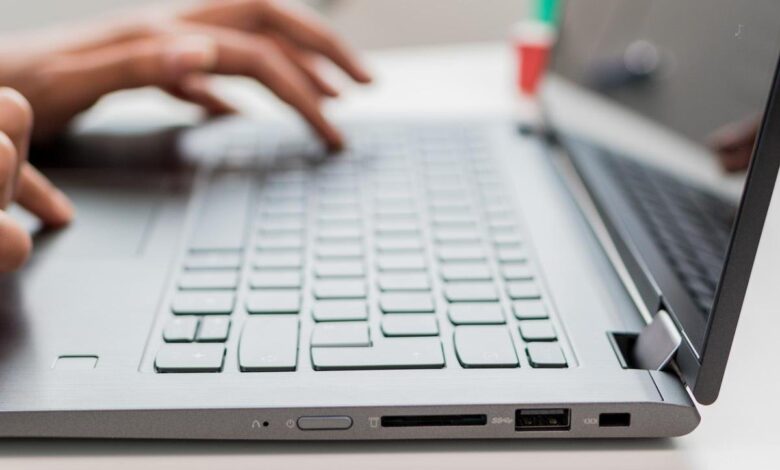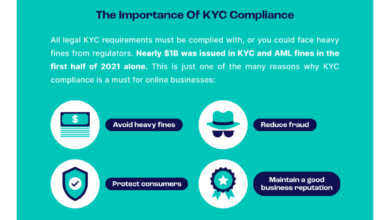12 Signs You Need a New Laptop

Laptops don’t last forever. Sure, you can resolve some of the issues through troubleshooting and repair. But at some point, you must go for an upgrade.
Even with so many advancements in technology, things go south. Sometimes our laptops go haywire when we’ve kept them around too long. It’s a good idea to keep your warranty safe because you never know when computer issues will strike. Keep reading for 12 computer issues that show you need a new laptop.
1. Overheating Laptop
Overheating is one of the typical laptop problems. It occurs because of a faulty fan, poor handling, or weakening performance. You can quickly feel your laptop overheating from the chassis or touchpad.
An overheated laptop feels abnormally hot when you’ve powered it on for a while. In some laptops, it’s accompanied by a whirring noise from an overworking fan.
Overheating can spoil your day due to reduced laptop performance. Most modern CPUs can cut down speeds to counter the heating stress. The fail-safe software may also prompt an instant shutdown to protect your hardware.
Laptops may overheat due to blocked vents, clogged-up fans, dusty grills, or degenerating thermal paste. You may also notice overheating when you place it on a soft surface that blocks your laptop’s vents.
Sometimes, a laptop develops heating issues due to failing internal systems. In this case, there’s nothing much your technician can do to cure your computer. They may clean it and boost the thermal paste but fail to boost cooling. But you should plan on buying a new laptop.
2. Laptop Failing to Power On
A good functioning laptop may sometimes fail to power on. You try to power it on as usual but, this time, it doesn’t respond. This is a worrying occurrence but they are several ways to resolve it.
A broken charger or port pin may contribute to power laptop problems. A broken pin means your laptop doesn’t charge correctly. Replace the pin and if it still fails to charge, you have to look at your battery.
Disconnect the AC and remove your battery from the laptop. Wait for a minute and then insert back the battery and reconnect the power chord. Try to turn on your computer.
Sometimes a powering on laptop problem occurs because of a power clog. A residual electric charge remains in the laptop after powering off and prevents powering on. Try to remove the battery and insert it back in a few minutes.
After exhausting all troubleshooting options, your laptop should power on. If it doesn’t, there’s a likelihood of a hardware problem. Most likely, it’s a motherboard or processor problem. Take it for complete diagnostics and if it’s not reasonable to repair, get a replacement.
3. Issues With Display
Laptop screens problems can make you think about replacing your laptop. Your screen may lose its usual brightness. It can also flicker non-stop when you’re chasing deadlines.
Laptop screen problems are also varied and complex. The blue screen could be a sign of faulty hardware or broken screens.
Pixel defects can also cause your screen to malfunction. A serious pixel issue calls for the changing of your graphics card. Look for a technician or your manufacturer if you think you have a pixel issue.
Other laptop screen problems include frozen screens, distorted colors, digital artifacts, and distorted colors. Always look for professional help unless you know how to troubleshoot screens.
Serious laptop screen issues may need a screen replacement. Many people back off from screen replacement due to the outrageous cost and buy new laptops.
4. Inability to Update to the Best Software
A software upgrade is the most basic test to determine the usefulness of your laptop. A reliable laptop should be compatible with the popular software of today. Without this, you may start to think you’re using an outdated or ancient gadget in the name of a PC.
You want to use the latest operating system─ which in most cases is Windows 10. This way, you can enjoy stable performance, faster loads, and advanced security features.
If your PC is struggling to run your favorite applications, it’s time to consider an upgrade. You want the best features and performance to enjoy using your machine. Consider the latest Lenovo for an upgrade that’s value for your money.
5. 2GB RAM Laptop
If you bought your laptop when 2GB was a thing or when you didn’t think you needed a high performance, it could be time for an upgrade. With time, a smaller RAM poses performance issues that you could barely think of when buying.
A bigger PC memory is valuable when you want to multitask. With 2GB RAM, your laptop is likely to lag when you’re using RAM-heavy apps simultaneously. Extra RAM can allow you to do various tasks at once without the laptop hanging.
Another reason to consider buying a 4GB or 8GB RAM laptop is the heaviness of current software. The best or advanced software needs a good amount of RAM.
6. Hard Disk Drive Hang-ups
Hard disk drive laptops are more prone to performance issues than solid-state drive laptops. HDDs have been around for many years. Unlike SSDs, they have slower speeds, lesser capacity, and endurance.
An old laptop is likely to be an HDD, so sometimes there’s little you can do to improve its performance. These laptops are more vulnerable to hang-ups and crashes. Their storage is also physical, meaning you run the risk of total data loss in case of damage.
Once an HDD begins to hang up, you should consider upgrading to SSD. You will see a massive change in performance due to increased speeds and capacity.
7. Unreliable Battery
A laptop battery’s ability to hold power diminishes the more you charge it. At some point, you’ll notice your battery’s strength weakens and doesn’t last 30 minutes. At this point, you should either buy a new battery or use your laptop when you’re near a power socket.
Battery life span may depend on your laptop’s performance demands. If you use your computer a lot, you’re likely to charge it more often. By the time your battery fails, your laptop is also nearing a phase of issues. It can be cheaper and convenient to buy a new notebook instead of spending on recurring repair costs.
8. Old/Outdated Laptop
Many modern laptops may last for up to six years. If your laptop is almost six years or older, it could be slow and due for an upgrade.
But you may hold on to an old laptop because you feel uncomfortable replacing it. The problem is you waste a lot of time and money when using an old laptop. Always consider the repair costs that you have to incur often.
Laptops improve performance as new models arrive. For example, if you’re a gamer, your computer is unreliable if you can’t upload the latest gaming software.
Your laptop should be able to run Windows 10 and modern browsers. It should also at least be 4GB RAM and run on a 64-bit operating system.
9. Unusual Noises
Weird static noises from your laptop could be another sign of problems. These noises are likely to come from components such as cooling fans, hard drives, or speakers.
Sound issues are likely to mean that one of your components is old or about to fail. Bad drives, software, and loose connections may also cause noise. In any case, you’ll have to diagnose your laptop and establish if it needs a replacement.
10. Blue Screens
Imagine you’re busy on a task and suddenly your display disappears. The next minute it turns on, and a frustrating blue screen appears. It can become routine if you don’t fix the underlying issue.
Blue screens or bug checks are warning signs about a critical system error. The message may mean your hardware, software, or drivers are corrupt. In turn, the fall-safe software triggers a shutdown that leaves you stuck.
A persisting blue screen may mean the RAM stick or operating system needs replacing or reinstalling. It’s also a sign of a dying laptop and a message to consider an upgrade.
11. Laptop Shuts Down Without Warning
Your computer may shut down randomly and cause you to bang your head on the desk with rage. It can mess up your day and ruin your work. The quickest way to get some peace of mind if this reoccurs is to get a new laptop.
There are too many reasons for instant laptop shutdowns. The cause could be as little as an impaired charge. It can also be as serious as a problematic OS or dying drives. Let your technician help you decide whether it’s sensible to repair or buy a laptop.
12. Slow Laptop Despite Upgrades
You may establish the problem with your laptop, repair it, yet performance doesn’t improve. It could still be slow despite updating drivers and reinstalling Windows.
If you feel the time and money you’re spending on repairs is too much, consider getting a new laptop. Sometimes your computer has a manufacturing defect, but unfortunately, your warranty expires. Read your warranty correctly to avoid losing your rights.
Learning How to Resolve Computer Issues
Computer issues are common but you can prevent some of them with proper computer care. First, ensure you buy a quality laptop. Follow all maintenance guideless on your manual to boost its longevity.
Get a new laptop if you’ve done your best to stop arising issues. For more tips on technology, check out the rest of our blog.



